Special Report
These 20 Congressmen Made the Biggest Stock Purchases in 2023

Published:

According to the 2012 STOCK Act, members of the United States Congress are allowed to buy and sell stocks as long as they follow some rules (like reporting each trade) and agree not to participate in insider trading based on information they may have learned while in office. Unsurprisingly, many members of Congress have found ways around these rules or simply ignore them. Some report their trades late or don’t report at all. There is also mounting evidence that some members of Congress participate in insider trading, and continue to do so.
Asking members of Congress to participate in a voluntary honor system when they are notoriously untruthful and unreliable was bound to fail. That being said, many of them still do report their trades. This has led to a few online services that track and keep records of all the trades made by U.S. congressmen. Naturally, this has added fuel to the fire that rages around the ethical and moral questions about allowing government officials to trade stocks.
How can congressmen afford to make such expensive trades on a government salary? Is it ethical to allow congressmen to buy and sell stocks when they have information that the public will never have access to? Is it morally acceptable for members of Congress to buy stocks in companies like arms manufacturers before or during times of war, pharmaceutical companies during disease outbreaks, or other similar situations? Your congressional representative is supposed to represent you and your neighbors at the capitol, but the more stocks they own and trade, the greater their conflicts of interest become. How can someone actually serve you when they are motivated to make decisions that actually benefit the companies they own? These are the questions that will come to mind as you see the 20 congressmen who made the biggest stock purchases in 2023.
Members of Congress are required to report a trade and the range within which the value of that trade falls. They do not have to report the exact value, so we cannot list the single largest purchases by each person. Instead, we created this list by including the highest likely amount of stocks purchased so far this year in total. We excluded those members of congress who only purchased treasury bonds or bills, and did not include any sales, only stock purchases.
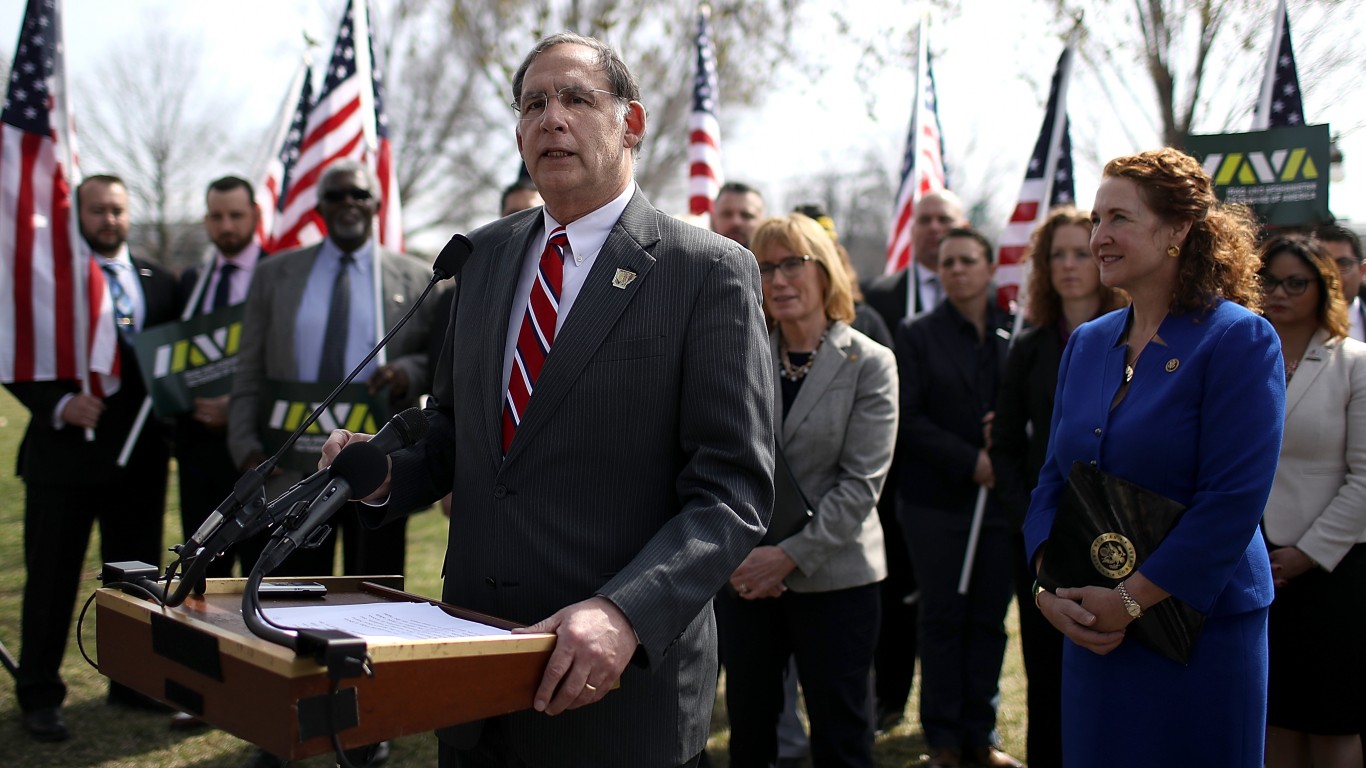
John is a Republican senator from Arkansas. He made 41 stock purchases in 2023 so far, totaling around $524,000. His largest purchases are for stock in banks like JPMorgan (NYSE: JPM), Goldman Sachs (NYSE: GS), and other financial institutions.
John has purchased stocks from energy companies while sitting on the Committee for Environment and Public Works. He also purchased stocks in the past from defense companies while sitting on the Senate Appropriations Committee’s Defense Subcommittee.
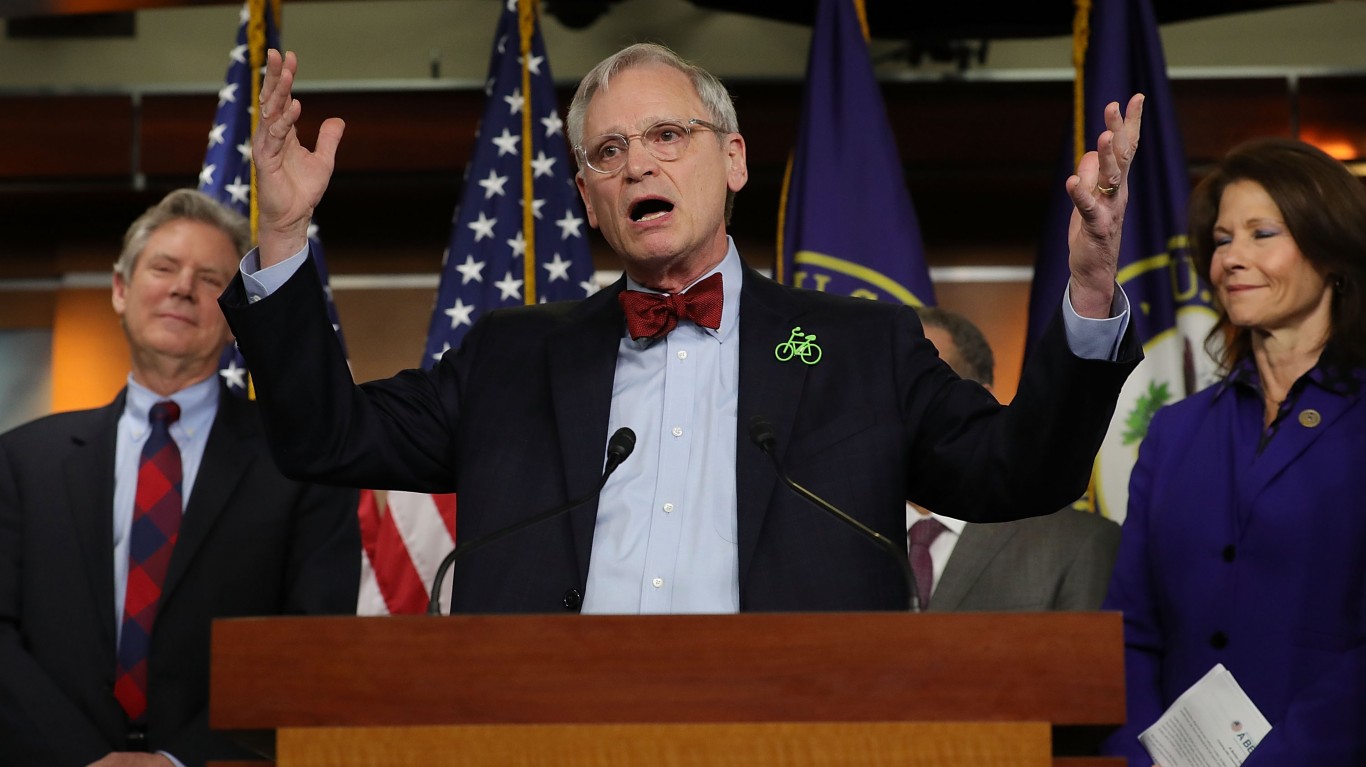
Earl is a democratic representative from Oregon. He made 24 stock purchases so far in 2023, with a total value of around $602,000. His largest purchases include stock from Comcast (NYSE: CMCSA), Molina Healthcare (NYSE: MOH), and PayPal (NYSE: PYPL).
Earl has a history of making stock purchases that present conflicts of interest or raise eyebrows. For example, he purchased stock in Raytheon (NYSE: RTX), a defense company, on the day Russia invaded Ukraine.
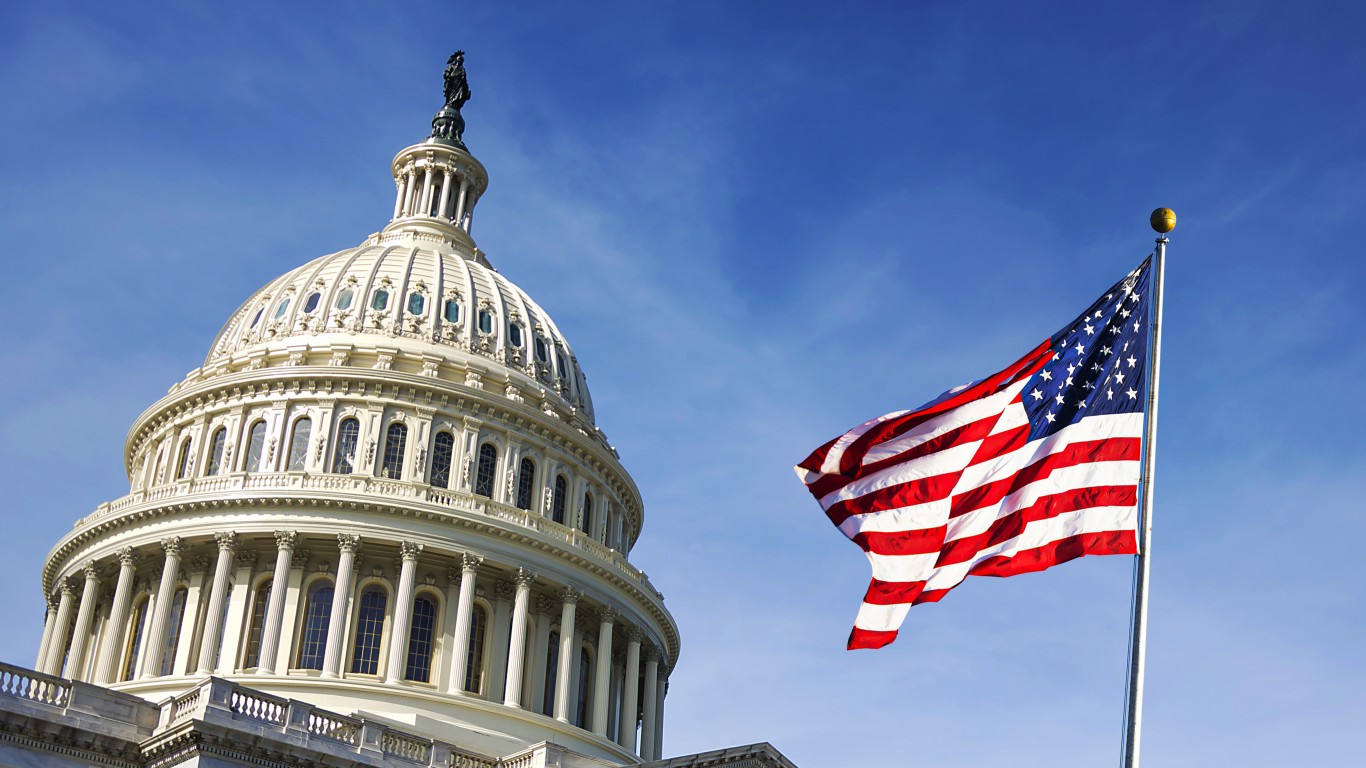
Michael is a Republican representative from Mississippi. He made 43 stock purchases so far for a total of around $784,000 in volume. He has invested in several technology and energy companies including Chevron (NYSE: CVX), Exxon Mobil (NYSE: XOM), and Uranium Energy Corp (NYSE: UEC).
He currently serves on the Subcommittee on Energy and Water Development and Related Agencies, which is clearly a conflict of interest with his stock purchases this year.
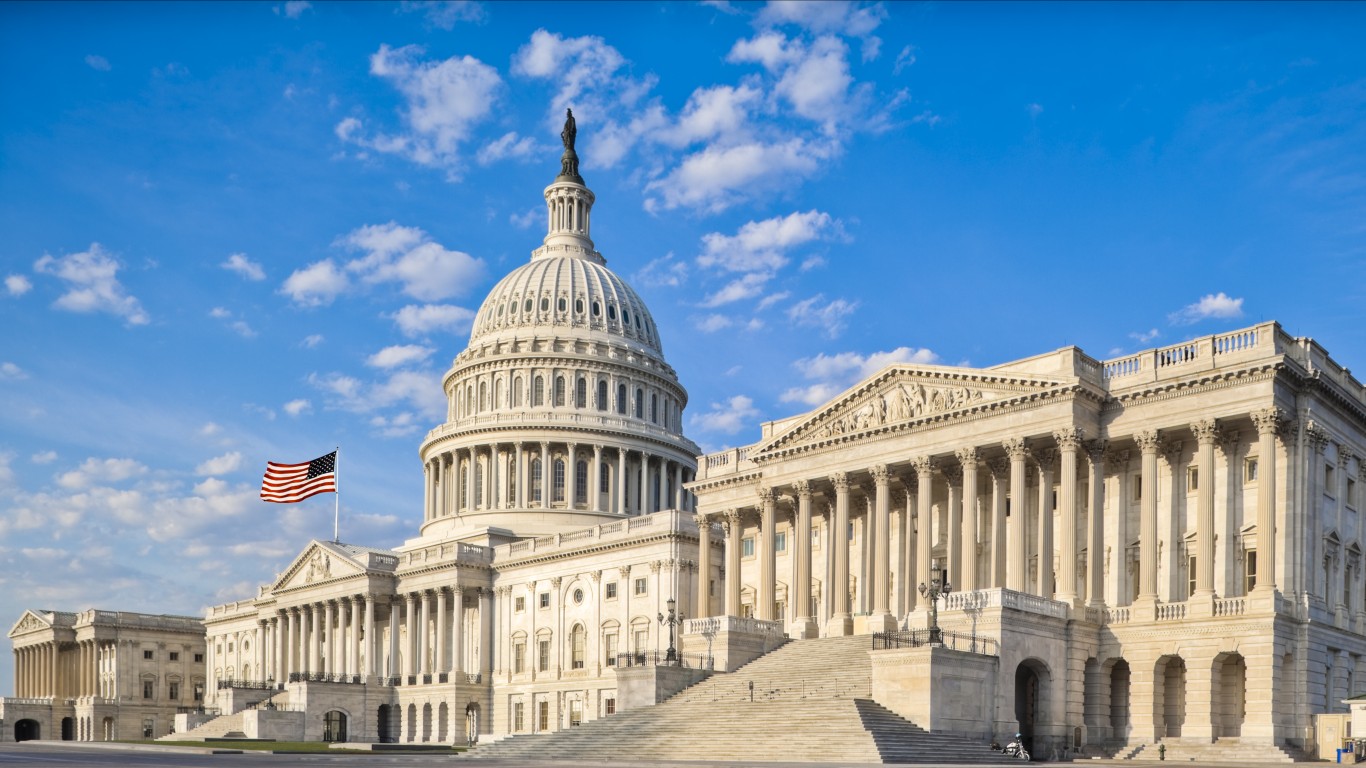
Katherine Clark is a Democratic representative from Massachusetts. She made only 3 stock purchases this year for a total of around $925,000. Her largest purchases, besides US treasury notes, was from Federal Farm Credit Bank.
Her trading activity dropped significantly this year. In 2020, Katherine made two purchases for shares in Hologic (NYSE: HOLX) one week before her subcommittee awarded the company $119 million for COVID-19 testing. She sold the shares just days after the contract was announced.
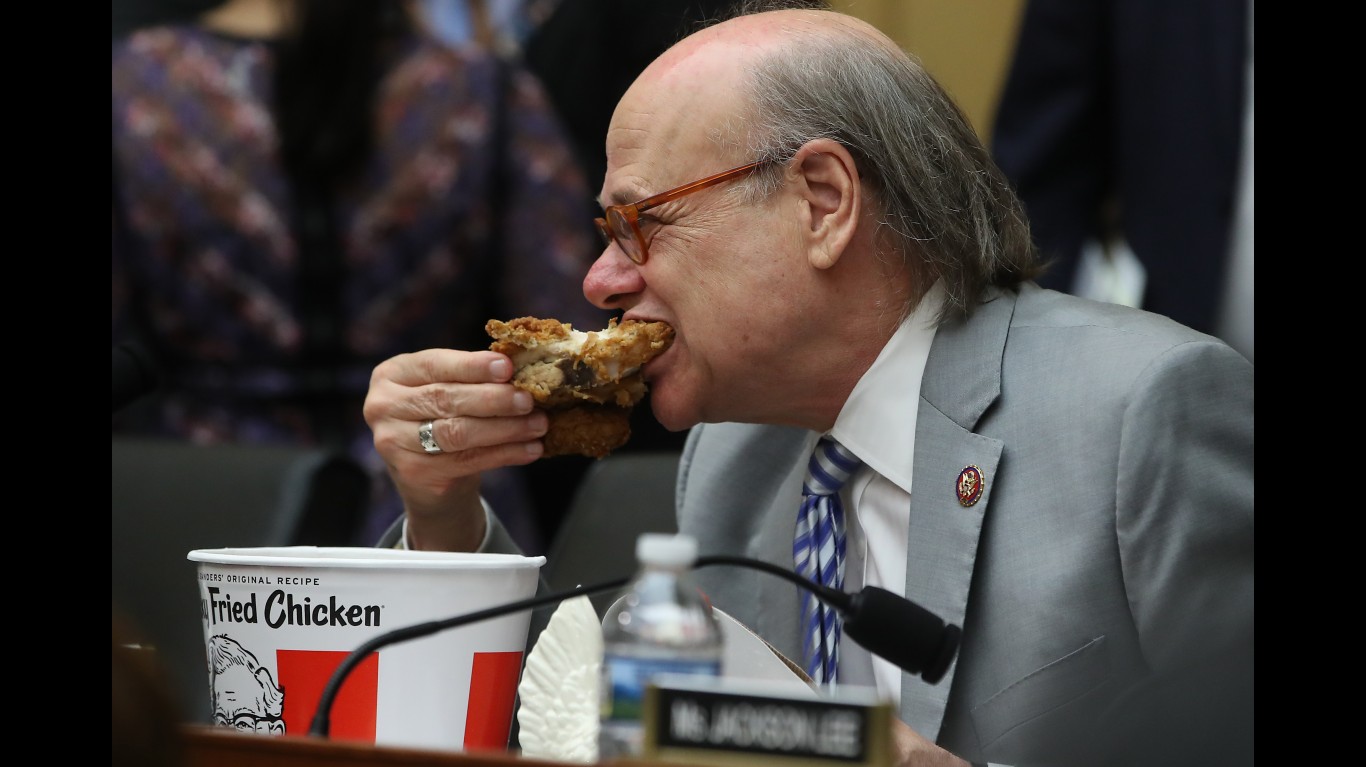
Steve is a Democratic representative from Tennessee. He made only 8 trades in 2023, but they totaled $1.23 million in volume. His largest two purchases, for between $250,000 and $500,000 were for stock in Charles Schwab (NYSE: SCHW) and First National Bank and Trust Company of Weatherford Texas.
During the 20199–2021 season, Steve sold significant amounts of stock in Boeing (NYSE: BA) while his subcommittee was investigating the company over their 737 Max aircraft.
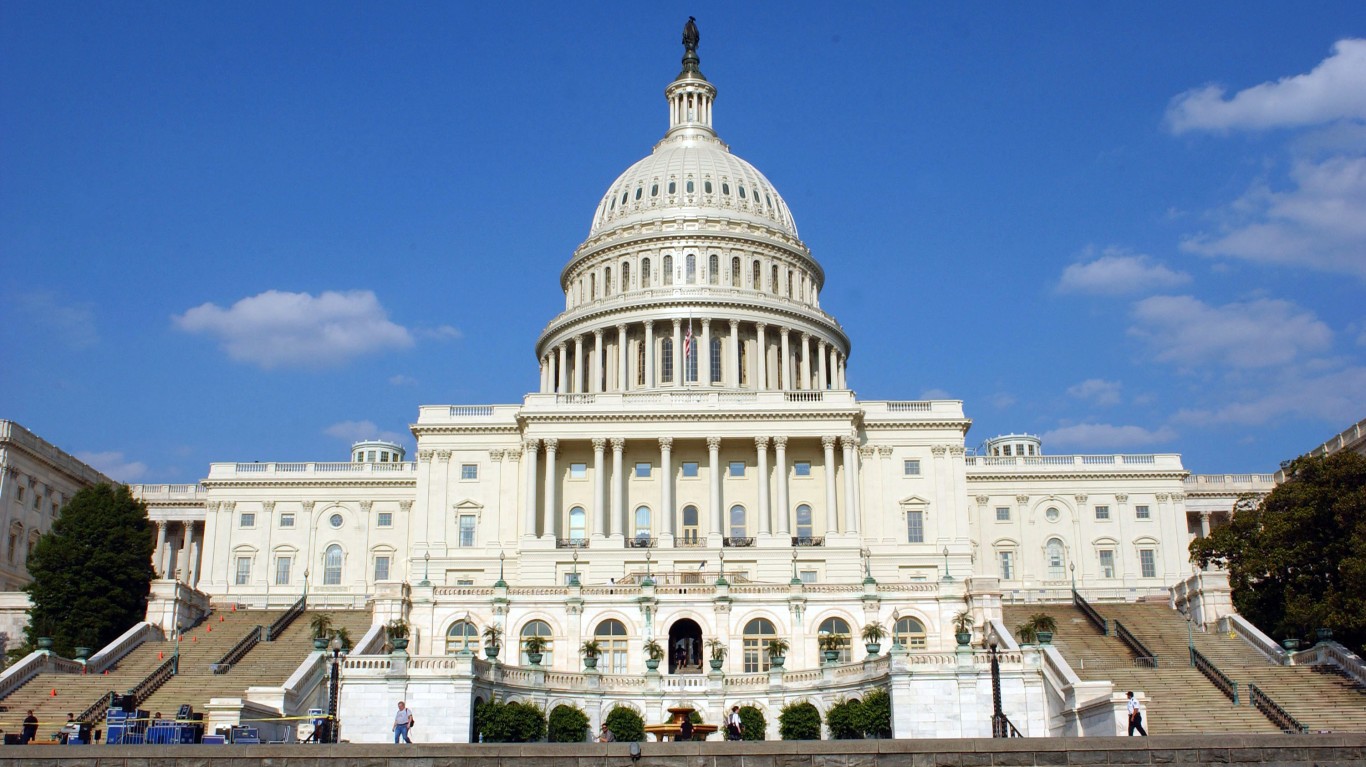
Mark is a Republican representative from Tennessee. He has made 8 trades in 2023, for an estimated value of $1.42 million. All of these purchases were with energy companies. He is the chairman of the Committee for Homeland Security.
Among other minority and controversial positions, Mark Green does not believe in humanity’s role in climate change. This raises many red flags about the fact that he has chosen to invest to heavily with energy companies, as he sees no need to reign in their operations or their ability to continue polluting land and air around the world.
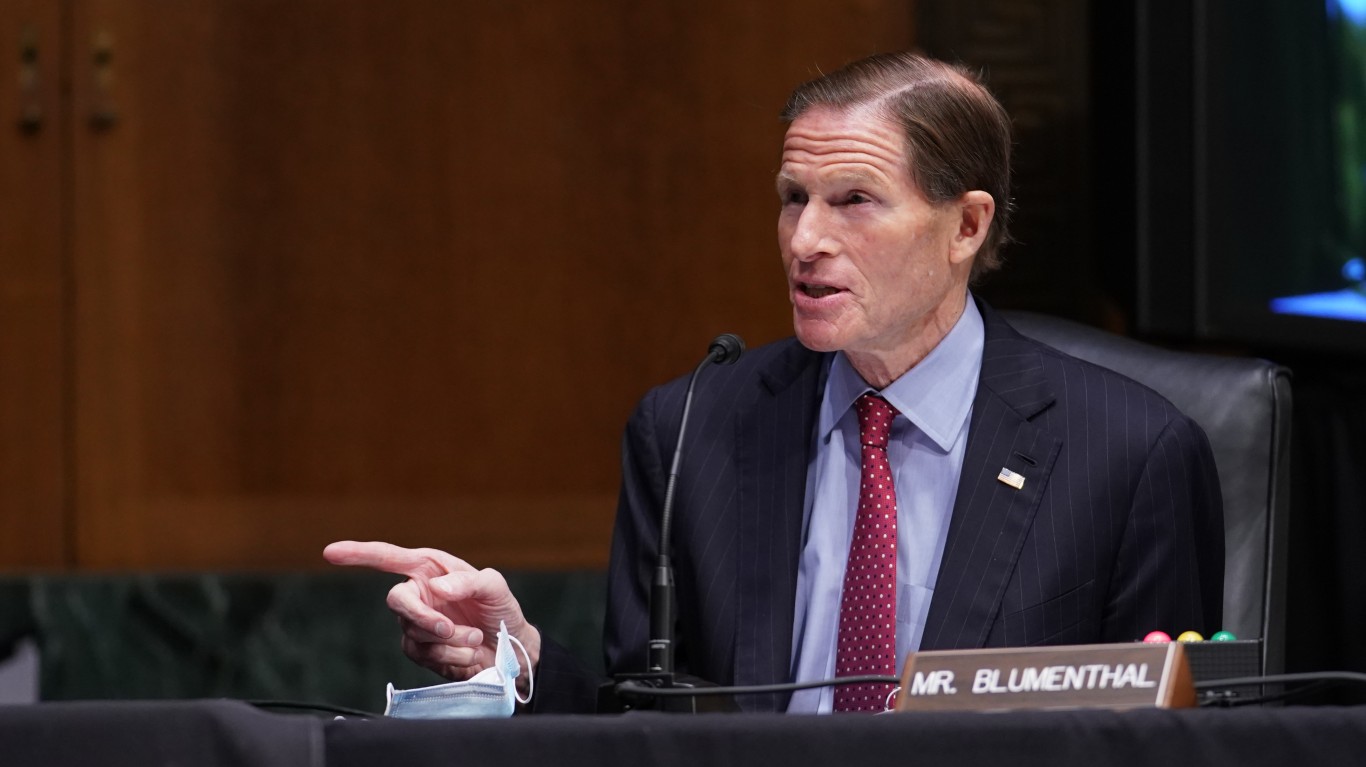
Richard is a Democratic senator from Connecticut. He made 12 purchases in 2023 for over $1.45 million. The largest of these purchases were from Admiral Acquisition Limited, a financial investment company, and for bonds from the Brazilian government.
Richard has made stock purchases in wireless communications companies while on the Senate subcommittee that oversees communications, media, and broadband.

Michael is a Republic representative from Texas. He made 46 purchases in 2023 for a total of $1.73 million in estimated value. Many of his trades are with investment companies like Blackstone Group (NYSE: BX) and Berkshire Hathaway (NYSE: BRK.B), and other technology and retail companies.
Michael serves on the House Energy and Commerce subcommittee and has a history of buying stock in companies over which he has insider information and responsibility.
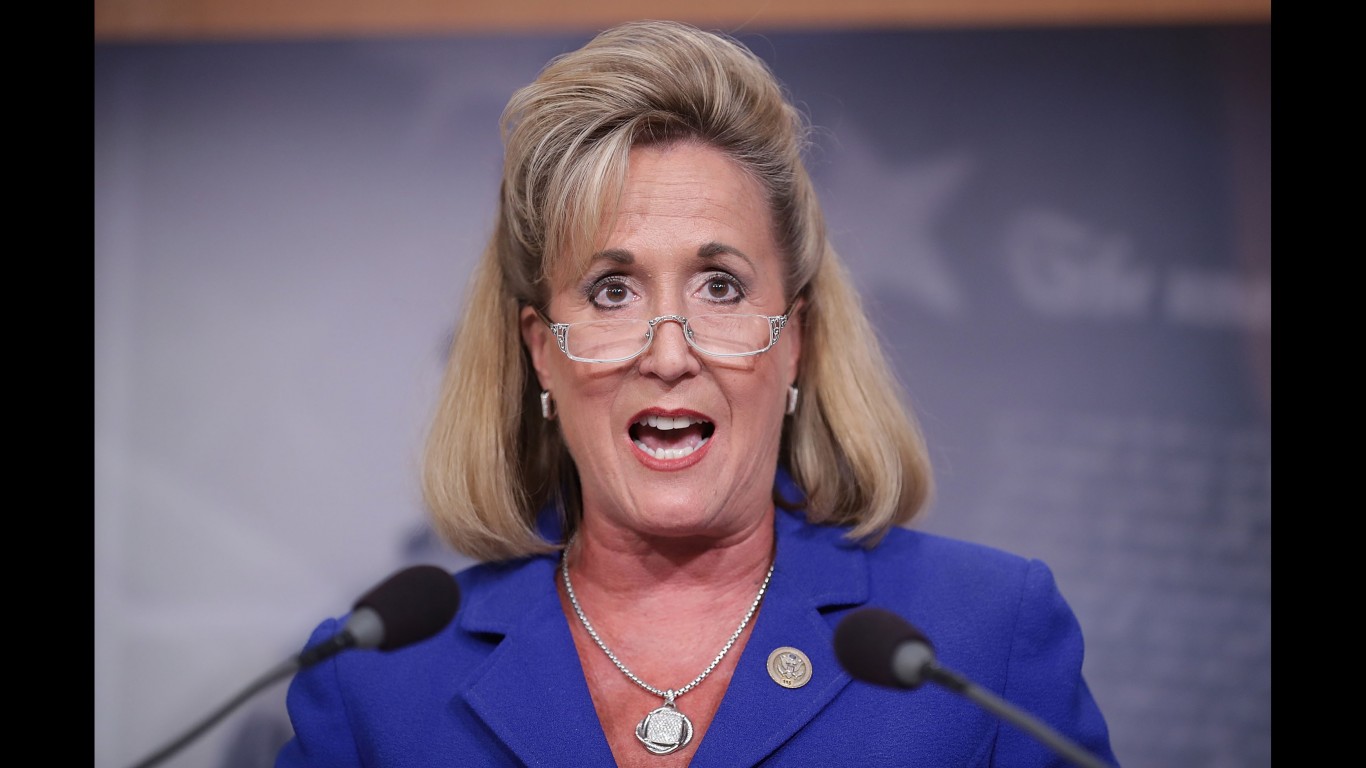
Ann is a Republican representative from Missouri. She made 11 stock purchases in 2023, totaling around $2.13 million. Her largest purchase, for at least $250,000, was from American Express (NYSE: AXP). Her other purchases include banks and municipal organizations in New York, Connecticut, Washington, and Iowa.
Ann serves on the Committee for Financial Services and the Committee for Foreign Affairs.

Tom is a Democratic senator from Delaware. He made 185 trades in 2023 for an estimated total of $2.15 million in value. While most of his purchases were for U.S. treasury bills, some of his largest purchases were from pharmaceutical and energy companies.
Tom serves on nine committees or subcommittees, covering everything from healthcare, finance, energy, and national borders.
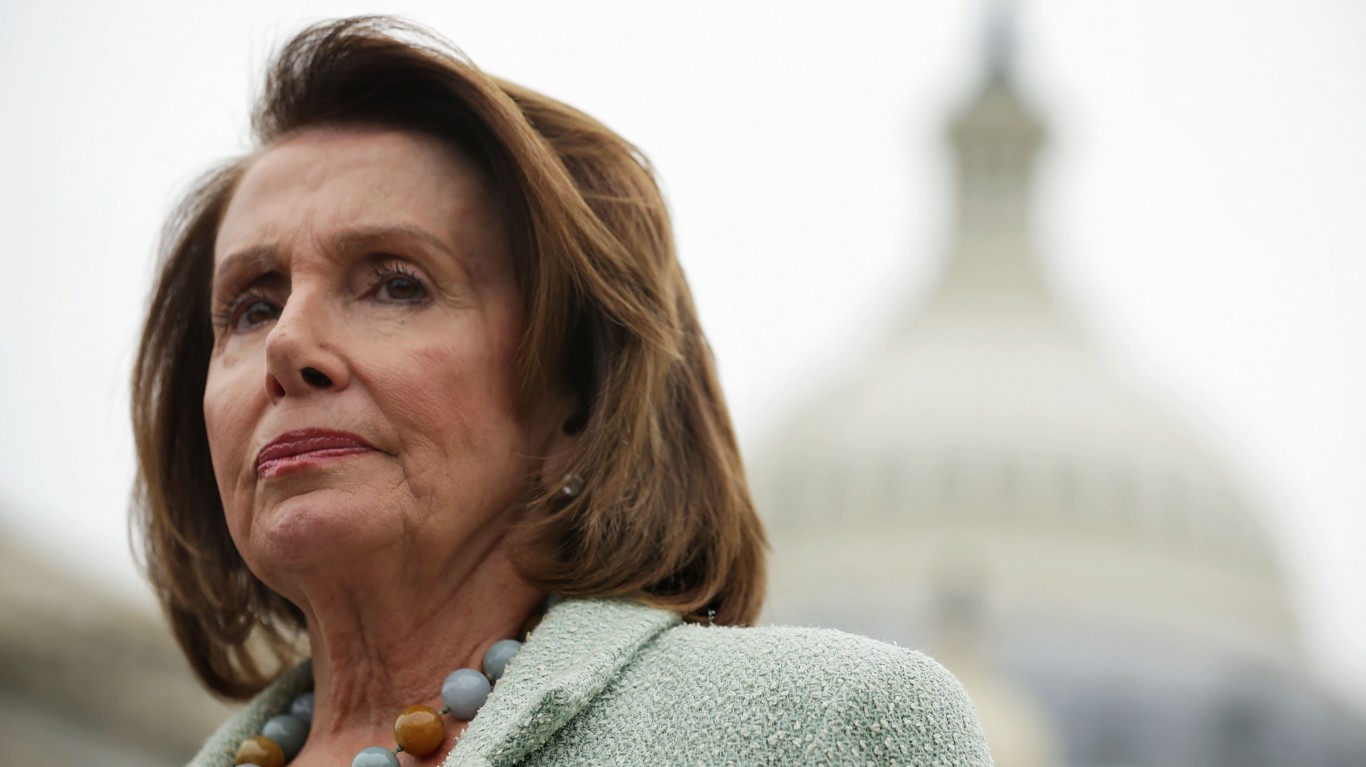
Nancy Pelosi, a democratic representative from California, made four stock purchases during 2023, with three of at least $500,000. This is estimated to be around $2.63 million in total purchases for the year.
Two of her 2023 purchases were for Apple (NYSE: AAPL), one was for Microsoft (NYSE: MSFT), and one was for a significant amount of shares from an untraded shell company.
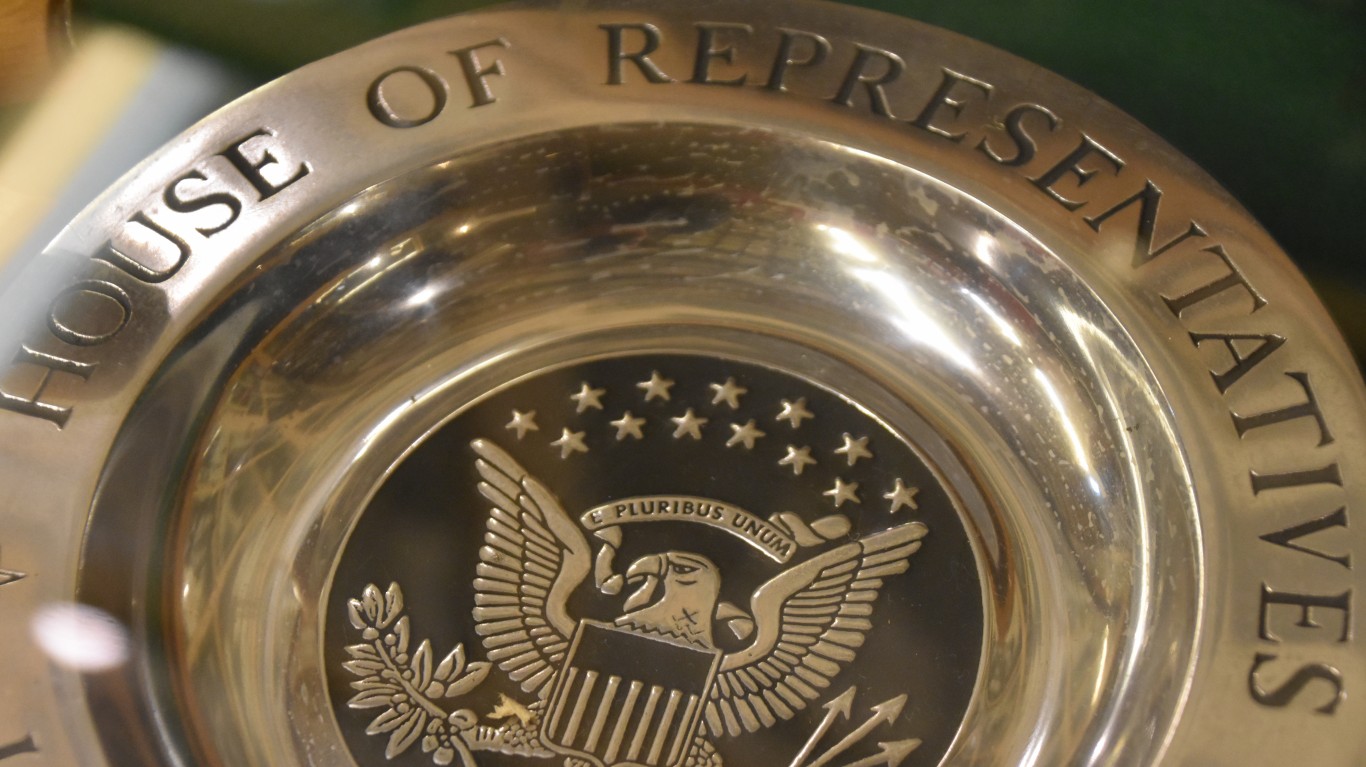
Maria is a Republican representative from Florida. She made 13 trades in 2023 for over $2.66 million in volume. Most of her stock purchases were in energy companies like New Fortress Energy (NYSE: NFE), and Energy Transfer LP (NYSE: ET).
Maria serves on the Committee on Foreign Affairs and the Committee on Small Business
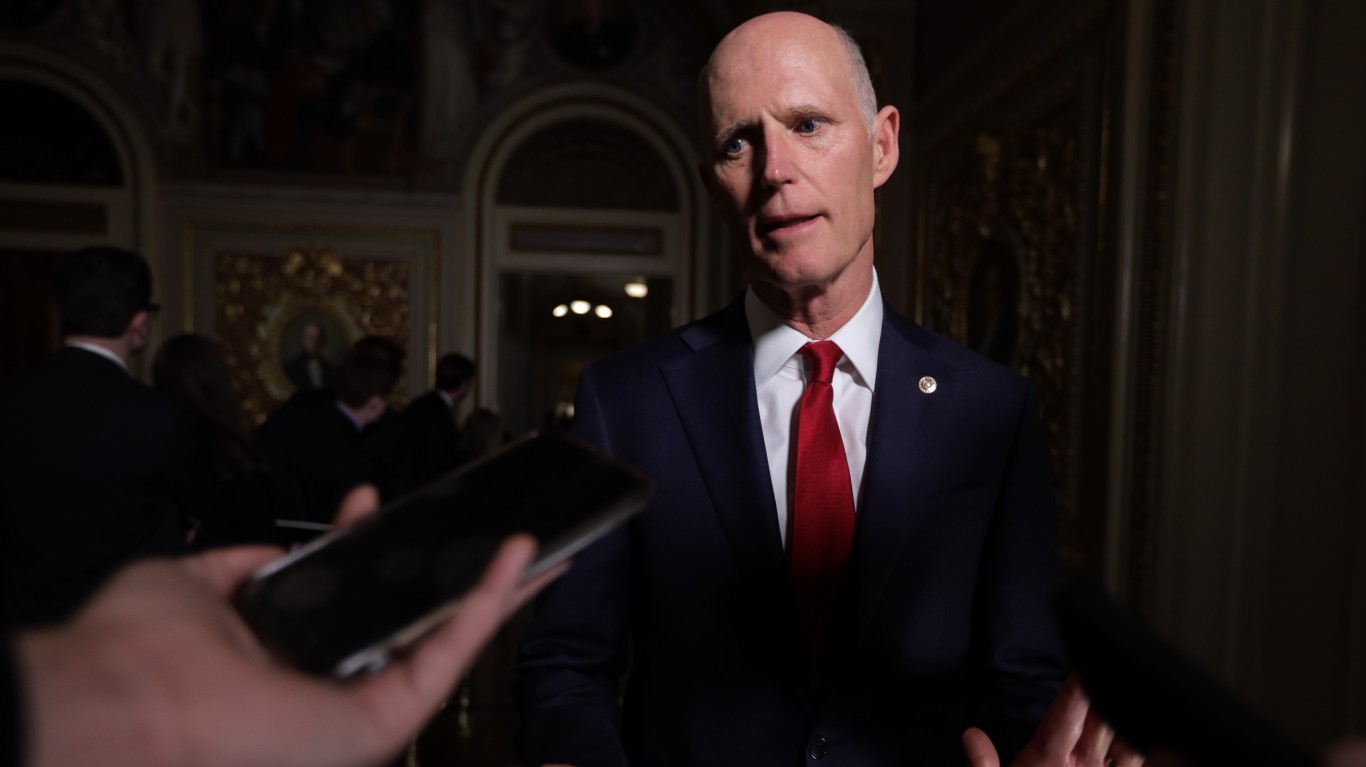
Rick Scott is a republican senator from Florida. He made 7 stock purchases in 2023, all from the Port of Seattle, Central Texas Regional Mobile Authority, and the New Jersey Educational Facilities Authority. The total for his purchases is estimated to be around $4.3 million. One might reasonably question why so many members of Congress are investing money into other areas that aren’t within their district.
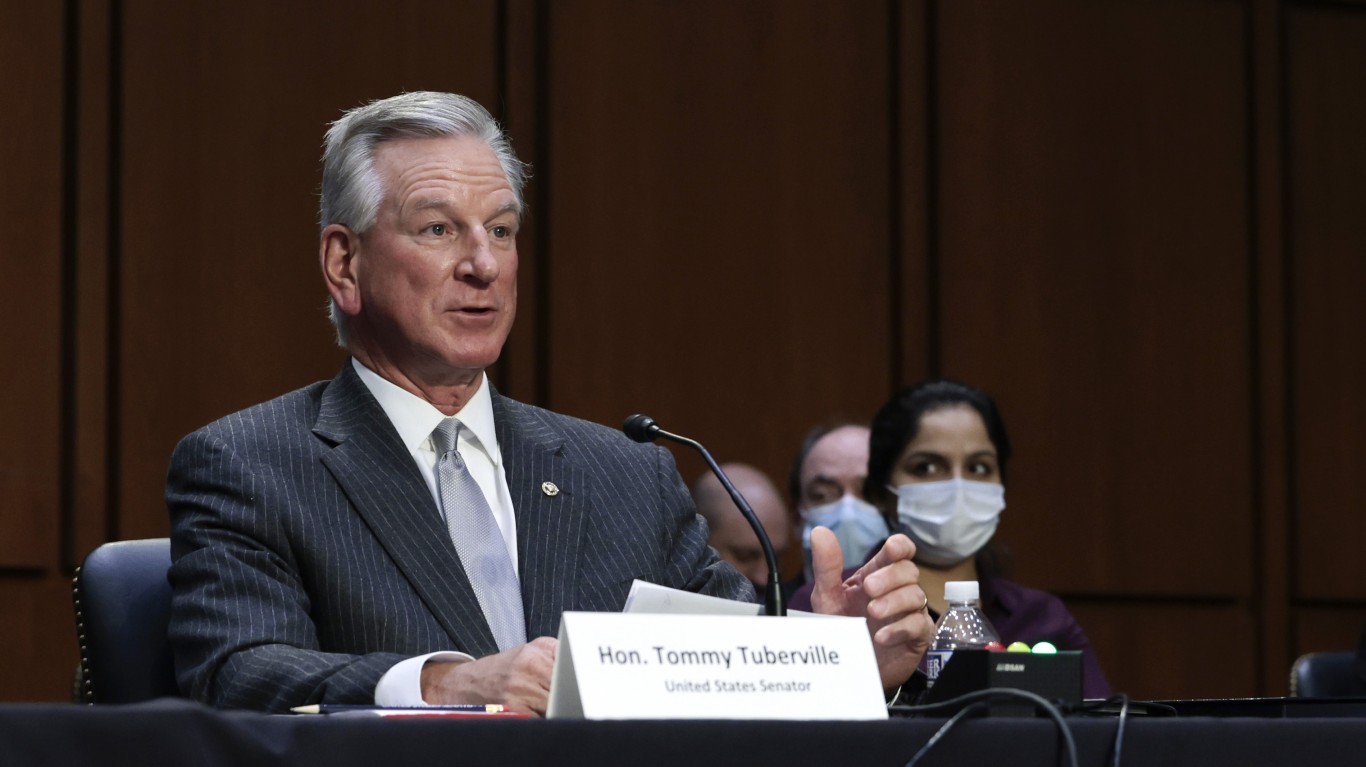
Tommy made is a Republican senator from Alabama. Tommy made 169 trades in 2023, with an estimated total value of $4.68 million. Most of his trades are usually reported late. During his 2019–2021 season, he bought shares in major drug companies while he was a member of the health committee, and also sold shares in Microsoft just before they lost a $10 billion government defense contract while he was on the Armed Services Committee.
Tommy is most known for holding up all military promotions that require Senate approval because he disagrees with the Defense Department’s policies regarding abortion. This has left the Marines without a leader for the first time in over 100 years, and leaving the Army and Navy without top officers.
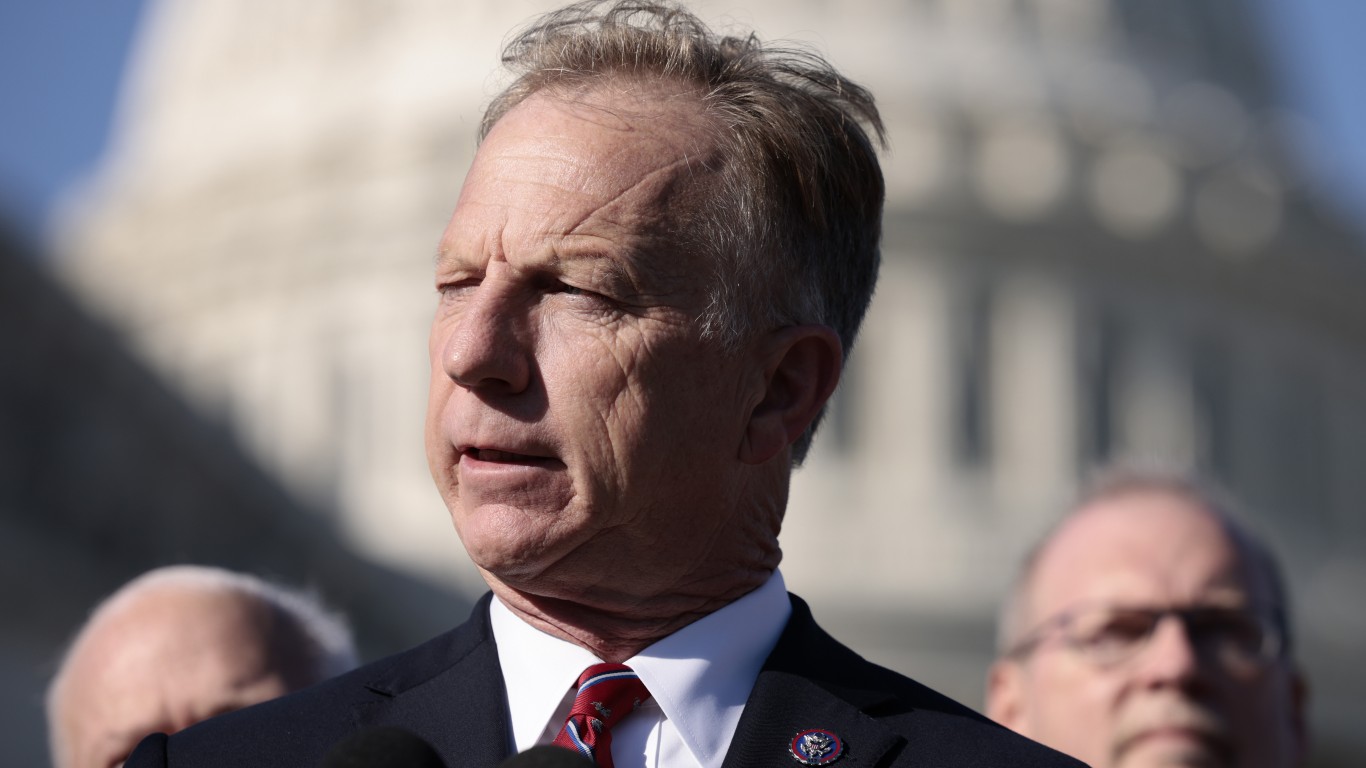
Kevin is a Republican representative from Oklahoma. He made 82 stock purchases so far in 2023, for an estimate total of around $7.52 million. He is probably the most obvious example on this list of a politician using their position to either enrich themselves or influence the market. Kevin has served on an energy-focused subcommittee and on the House Means and Ways Committee, which has jurisdiction over healthcare. While serving on these committees, he bought and sold shares in at least 12 gas and oil companies and has purchased hundreds of thousands of dollars worth of shares from healthcare companies like UnitedHealth Group (NYSE: UNH).
Kevin’s stock purchases in 2023 include banks, mining companies, the Devon Energy Group (NYSE: DVN), and Exxon Mobile.
Of his 109 trades made during the 2019–2021 season, 13 were involved with conflicts of interest.

Suzan is a democratic representative from Washington. She is the vice chair of the House Ways and Means Committee. Suzan has made 39 purchases so far in 2023, totaling at least $13.66 million. Most of them are for shares in municipal entities in Maryland, Illinois, Oklahoma, Colorado, and New Jersey.
Other significant purchases include those for shares in independent school districts, home loan companies, and transportation companies.

Daniel is a Democratic representative from New York. He made 382 stock purchases in 2023 as of November, totaling around $16.25 million in stock purchases. His purchases cover a wide range of companies including retailers, digital and media companies, defense contractors, and financial institutions.
He is one of the wealthiest congressmen with an estimated net worth of at least $253 million.
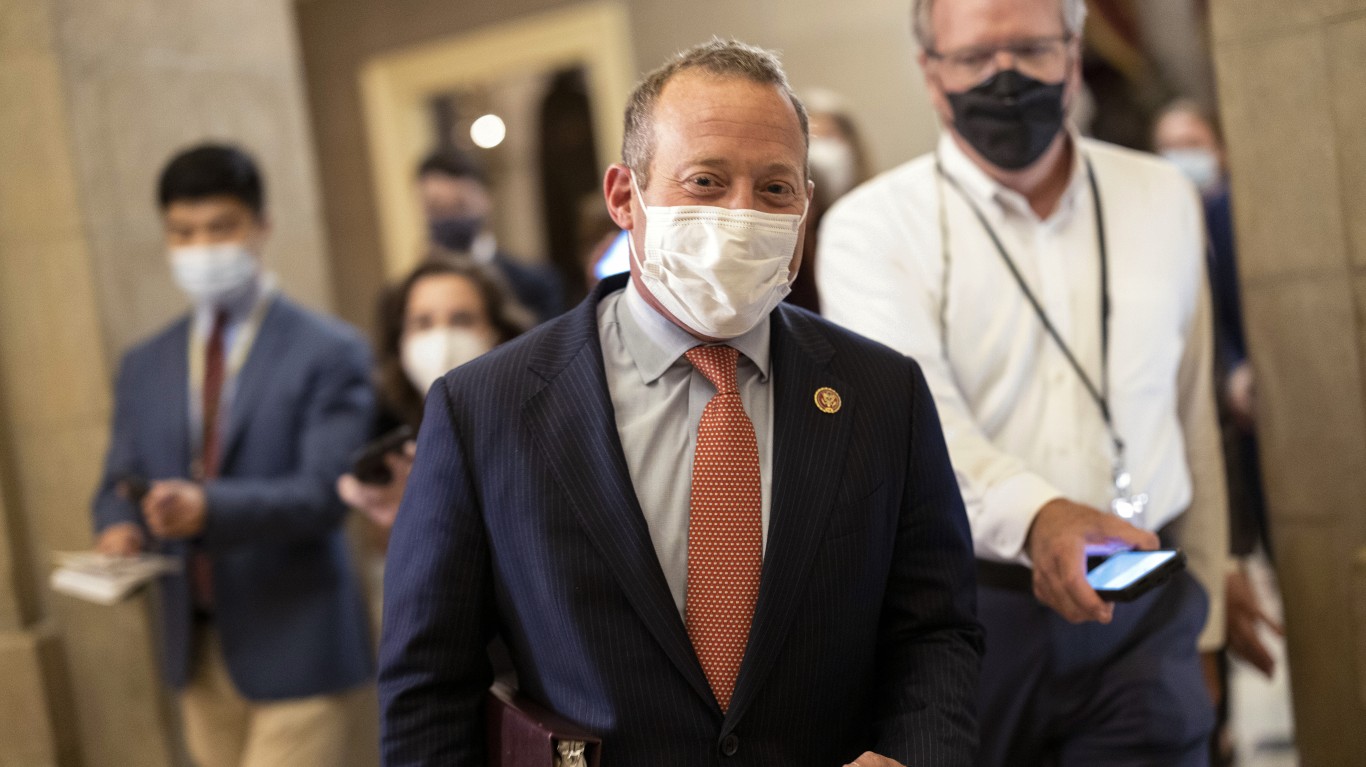
Josh is a Democratic representative from New Jersey’s 5th district. He has served since 2017. Josh is a very active trader with 239 stock purchases so far this year for an estimated total of $26.22 million. He has made several large trades in the range of $5 to $25 million since 2021 alone.
While a member of the Financial Services Committee, Josh bought and sold stocks with 326 companies from 2019 to 2021. He had conflicts of interest with 43 of those companies due to his position. These include JP Morgan Chase, Well Fargo (NYSE: WFC), and other large financial institutions.
Josh has said that he supports further restricting the ability of members of Congress to buy and sell stocks. He was a co-sponsor of a bill that would do just that.

Ro Khanna is a democratic representative from California and is the most active trader of all his colleagues. In 2023 alone, he has made over 2,231 stock purchases which total over $50.82 million. Ro Serves on the Armed Services Committee, Oversight and Reform Committee, and the Strategic Competition between US and CCP Committee.
His three largest purchases in 2023, totaling between $1 million and $5 million each, were with ELT Associates, a life and health insurance company.
During his 2019–2020 season, Ro made over 10,000 trades with 897 companies, of which 149 were with companies he had some influence or oversight, presenting severe conflicts of interest.
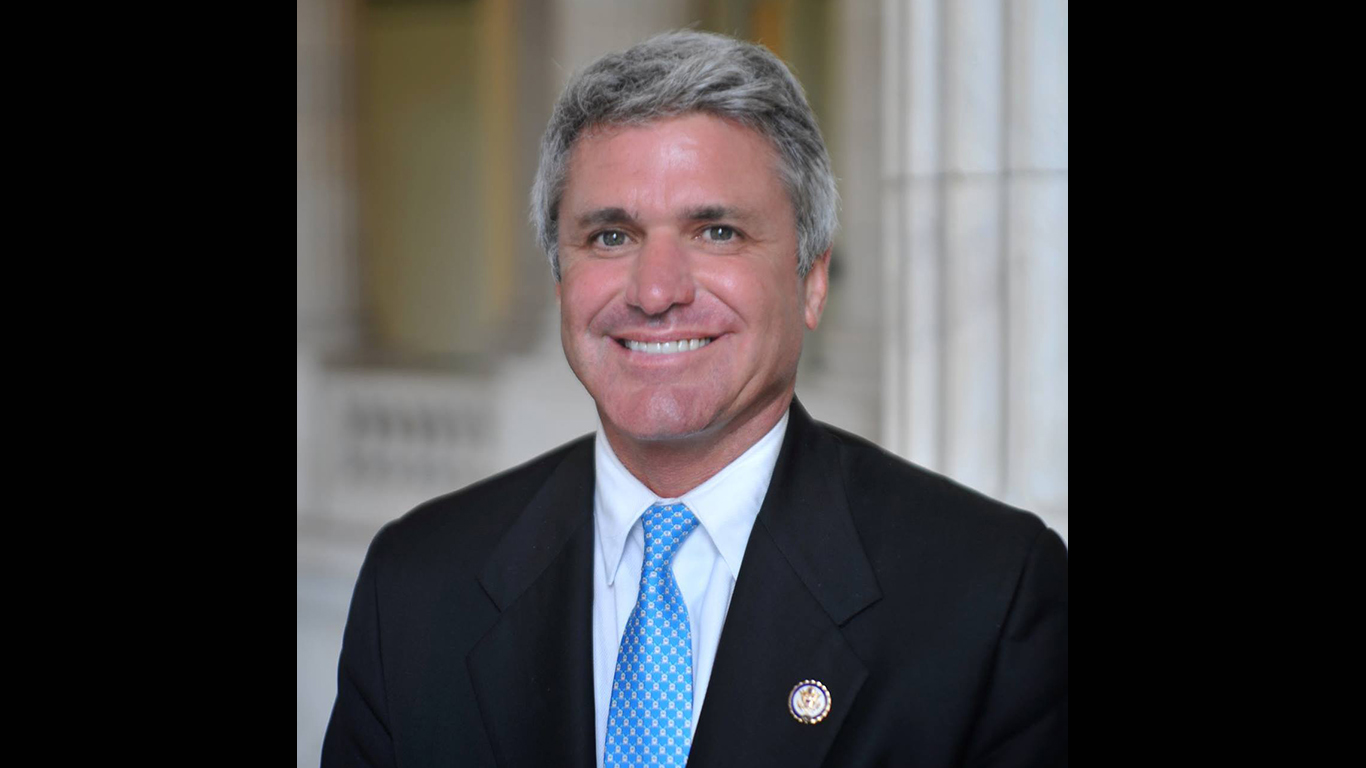
Michael McCaul is a republican representative from Texas’ 10th congressional district. He has served since 2005 and served as the House Committee on Homeland Security and is the current chair of the House Foreign Affairs Committee. He made 793 stock purchases in 2023, for a mind-boggling estimated total of $86.66 million.
Michael is the biggest stock trader on this list by a long shot. When he was elected to Congress in 2004, his net worth was only $12 million. By 2011, his net worth had shot up to $294 million. He is one of the wealthiest members of Congress. According to the New York Times, Michael bought or sold stocks with 342 companies between 2019 and 2021, including seven potential companies with which he had some conflict of interest while in Congress.
Like many of his colleagues, Michael’s stock purchases in 2023 include Adobe (NYSE: ADBE), Alphabet (NYSE: GOOGL), Amazon (NYSE: AMZN), Paypal, Dollar Tree (NYSE: DLTR), numerous municipal stocks, pharmaceutical companies, and much more.
This list is not exhaustive, nor is it extensive. There are many other members of Congress who have made significant purchases this year, or who may yet make large stock purchases before the year is over. It would be foolish to believe that members of congress report all their financial dealings. In fact, even for this list we can only include those transactions they willingly report, and yet they still report them late or not at all. You can’t expect much from the honor system in a group of people with a reputation for having little honor.
The fact that many members of congress have conflicts of interest over the stocks they bought, sold, or still hold has prompted many people, including some politicians, to call for stricter rules around what representatives and senators are allowed to do with their money while in office. Not many of these propositions have made it very far, and most have only made strong statements. It is unlikely that without outside pressure, the system will change to limit the ability of politicians to profit from their insider knowledge.
This list should, however, give you a pretty good idea of how our government is actually run, and what our elected officials might spend most of their time doing while on Capitol Hill. There are many resources online that allow you to investigate and audit your own senator or representative. We recommend you take some time to learn about who your elected officials are serving while in office.
Thank you for reading! Have some feedback for us?
Contact the 24/7 Wall St. editorial team.